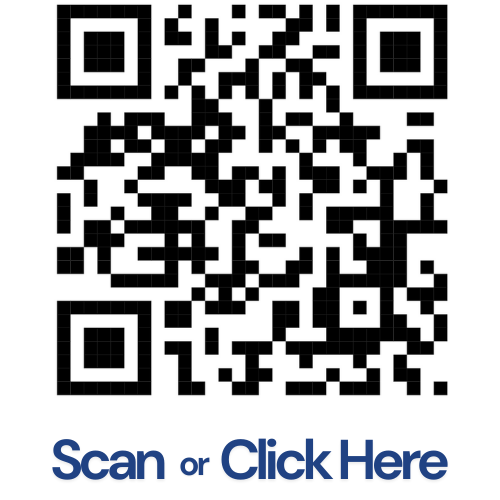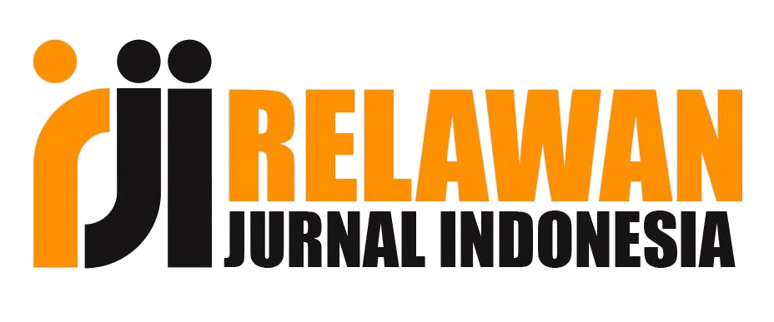Trends and Insights in Work Engagement Research: A Bibliometric Analysis
DOI:
https://doi.org/10.52250/bmr.v13i1.931Keywords:
Work Engagement, Budaya Organisasi; Employee Engagement, bibliometrics, publication trends, Researcher Collaboration, Transformational Leadership, Digital Technology, COVID-19 pandemicAbstract
Introduction/Main Objectives: Work engagement is an important concept in human resource management that is closely related to employee productivity and job satisfaction, yet the research still leaves gaps in the understanding of global trends and collaboration among researchers. This study aims to map publication trends, major themes, and significant contributions from authors and institutions related to work engagement using a bibliometric approach. Background Problems: Previous studies emphasize leadership, organizational culture, and job resources as key factors in work engagement, with transformational leadership being a positive contributor, but gaps remain in understanding their interplay, especially in non-Western contexts, specific industries, and areas like digital transformation, gender dynamics, and alternative leadership styles. Novelty: This study provides a bibliometric analysis that highlights global collaboration, key topics such as digital transformation and the impact of COVID-19 on work engagement, and offers practical insights to help academics and practitioners improve employee engagement strategies. Research Methods: Data were analyzed from 1,626 articles in the Scopus database published in 1984-2024, with the help of VOSviewer software to analyze keywords, collaboration patterns, and geographical distribution. Finding/Results: The results show a significant increase in the number of publications since 2010, with themes such as transformational leadership and psychological empowerment being the main concerns, and the impact of the pandemic and digital technology on work engagement as the latest issues. This research makes an important contribution in identifying unexplored research areas, as well as providing guidance for academics and practitioners in designing strategies to improve employee engagement in an era of dynamic change.
References
Akter, H., Sentosa, I., Hizam, S. M., Ahmed, W., & Akter, A. (2021). Finding the Contextual Gap Towards Employee Engagement in Financial Sector: A Review Study. International Journal of Academic Research in Business and Social Sciences, 11(5), 737–758. https://doi.org/10.6007/ijarbss/v11-i5/9847
Albrecht, S. L., Bakker, A. B., Gruman, J., Macey, W., & Saks, A. M. (2015). Employee engagement, human resource management practices and competitive advantage: An integrated approach. Journal of Organizational Effectiveness: People and Performance. Journal of Organizational Effectiveness People and Performance, 2(1), 7–35.
Alfes, K., Shantz, A. D., Truss, C., & Soane, E. C. (2013). The link between perceived human resource management practices, engagement and employee behaviour: A moderated mediation model. International Journal of Human Resource Management, 24(2), 330–351. https://doi.org/10.1080/09585192.2012.679950
Almager, I. L., Cumby, S., & Almekdash, M. H. (2021). Developing Human Capital through Instructional Leadership: Learning to Coach during Principal Preparation. Open Journal of Leadership, 10(02), 169–192. https://doi.org/10.4236/ojl.2021.102012
Altaf, A., & Masrek, M. N. (2021). Visualizing the knowledge domain of Work Engagement through Bibliometric Analysis. Library Philosophy and Practice, 2021.
Bakker, A. B. (2006). schaufeli2006 EE definition.pdf. 701–716.
Bakker, A. B., Albrecht, S. L., & Leiter, M. P. (2011). Work engagement: Further reflections on the state of play. European Journal of Work and Organizational Psychology, 20(1), 74–88. https://doi.org/10.1080/1359432X.2010.546711
Bakker, A. B., & Demerouti, E. (2007). The Job Demands-Resources model: State of the art. Journal of Managerial Psychology, 22(3), 309–328. https://doi.org/10.1108/02683940710733115
Bakker, A. B., & Demerouti, E. (2017). Job demands–resources theory: Taking stock and looking forward. … of Occupational Health Psychology. https://psycnet.apa.org/fulltext/2016-48454-001.html
Bakker, A. B., Schaufeli, W. B., Leiter, M. P., & Taris, T. W. (2008). Work engagement: An emerging concept in occupational health psychology. Work &stress. https://doi.org/10.1080/02678370802393649
Borst, R. T., Kruyen, P. M., Lako, C. J., & de Vries, M. S. (2020). The Attitudinal, Behavioral, and Performance Outcomes of Work Engagement: A Comparative Meta-Analysis Across the Public, Semipublic, and Private Sector. Review of Public Personnel Administration, 40(4), 613–640. https://doi.org/10.1177/0734371X19840399
Chairunnisa, Aji, F., & Wijaya, A. N. (2023). Employee engagement: a literature review. Psikologia: Jurnal Pemikiran Dan Penelitian Psikologi, 18(2), 148–163. https://doi.org/10.32734/psikologia.v18i2.12190
Chaudhary, R., & Sisodia, S. (2022). The Impact Of Transformational Leadership On Employee Engagement Mediated By Organisational Citizenship Behaviour And Employee Culture A Systematic Literature Review.
Choudhary, N., & Jain, S. (2024). A systematic literature review to explore the antecedents of employee engagement among remote workers. Journal of Work-Applied Management. https://doi.org/10.1108/JWAM-11-2023-0136
Demerouti, E., Nachreiner, F., Bakker, A. B., & Schaufeli, W. B. (2001). The job demands-resources model of burnout. Journal of Applied Psychology, 86(3), 499–512. https://doi.org/10.1037/0021-9010.86.3.499
Gašić, D., & Berber, N. (2021). The Influence of Flexible Work Arrangement on Employee Behavior During the COVID-19 Pandemic in the Republic of Serbia. Management:Journal of Sustainable Business and Management Solutions in Emerging Economies, 26. https://doi.org/10.7595/management.fon.2021.0026
Günther, N., Hauff, S., & Gubernator, P. (2022). The joint role of HRM and leadership for teleworker well-being: An analysis during the COVID-19 pandemic. German Journal of Human Resource Management, 36(3), 353–379. https://doi.org/10.1177/23970022221083694
Han, Y., Yang, Y., & Mohamed, R. (2023). A bibliometric analysis of work engagement in the hospitality and tourism industry. Journal of Hospitality and Tourism Insights, 6(5), 1946–1966. https://doi.org/10.1108/JHTI-06-2022-0235
Hartman, R. L., & Barber, E. G. (2020). Women in the workforce: The effect of gender on occupational self-efficacy, work engagement and career aspirations. Gender in Management, 35(1), 92–118. https://doi.org/10.1108/GM-04-2019-0062
Hirschi, A. (2012). The career resources model: An integrative framework for career counsellors. British Journal of Guidance and Counselling, 40(4), 369–383. https://doi.org/10.1080/03069885.2012.700506
Hoffman, B. J., & Woehr, D. J. (2006). A quantitative review of the relationship between person-organization fit and behavioral outcomes. Journal of Vocational Behavior, 68(3), 389–399. https://doi.org/10.1016/j.jvb.2005.08.003
Iddagoda, Y. A., & Opatha, H. H. D. N. P. (2016). Identified Research Gaps in Employee Engagement. International Business Research, 10(2), 63. https://doi.org/10.5539/ibr.v10n2p63
Jena, L., Pradhan, S., & Panigrahy, N. P. (2018). Pursuit of Organisational Trust: Role of Employee Engagement, Psychological Well-being and Transformational Leadership. Asia Pacific Management Review, 22, 1–17. https://doi.org/10.1016/j.apmrv.2017.11.001
Kahn, W. A. (1990). Psychological conditions of personal engagement and disengagement at work. Academy of Management Journal, 33(4), 692–724. https://doi.org/10.5465/256287
Karatepe, O. M., & Demir, E. (2014). Linking core self-evaluations and work engagement to work-family facilitation: A study in the hotel industry. International Journal of Contemporary Hospitality Management, 26(2), 307–323. https://doi.org/10.1108/IJCHM-01-2013-0008
Khalid, B. (2021). Importance of Employee Engagement at Workplace: Literature Review and Future Directions. Pakistan Social Sciences Review, 5(I), 72–84. https://doi.org/10.35484/pssr.2021(5-i)07
Kişi, N. (2023). Bibliometric Analysis and Visualization of Global Research on Employee Engagement. Sustainability (Switzerland), 15(13). https://doi.org/10.3390/su151310196
Knight, C., Patterson, M., & Dawson, J. (2017). Building work engagement: A systematic review and meta-analysis investigating the effectiveness of work engagement interventions. Journal of Organizational Behavior, 38(6), 792–812. https://doi.org/10.1002/job.2167
Kumari, S., Shukla, B., & Mishra, P. (2025). Hybrid workplace, work engagement, performance and happiness: A model for optimizing productivity. Multidisciplinary Reviews, 8(1). https://doi.org/10.31893/multirev.2025012
Lenart-Gansiniec, R., Sypniewska, B. A., & Chen, J. (2023). Innovation-driven human resource management practices: A systematic review, integrative framework, and future research directions. Journal of Entrepreneurship, Management and Innovation, 19(2), 7–56. https://doi.org/10.7341/20231921
Lyu, X. (2020). Work Engagement in the Context of Confucian Culture: A Case of Chinese Civil Servants. Frontiers in Psychology, 11. https://doi.org/10.3389/fpsyg.2020.573146
Makowski, P. (2023). Remote Leadership and Work Engagement: A Critical Review and Future Directions. European Journal of Business and Management Research, 8(4), 1–7. https://doi.org/10.24018/ejbmr.2023.8.4.1835
Neuber, L., Englitz, C., Schulte, N., Forthmann, B., & Holling, H. (2022). How work engagement relates to performance and absenteeism: a meta-analysis. European Journal of Work and Organizational Psychology, 31(2), 292–315. https://doi.org/10.1080/1359432X.2021.1953989
Pringgabayu, D., & Rofaida, R. (2024). Decoding Virtual Employee Engagement : A Bibliometric Analysis. 8(2), 1067–1081. https://doi.org/10.33087/ekonomis.v8i2.1485
Priyashantha, K. G., De Alwis, A. C., & Welmilla, I. (2023). Common methods and outcomes of employee engagement: a systematic literature review towards identifying gaps in research. Sri Lanka Journal of Social Sciences, 46(1), 39–64. https://doi.org/10.4038/sljss.v46i1.8613
Puspita et al., 2020. (2018). The Influence of Organizational Culture and Work Engagement Over Employee Performance Mediated by Employee Loyalty Nadya. Archives of Anesthesiology and Critical Care, 4(4), 527–534.
Ramadan Wardiansyah, D., Khusniyah Indrawati, N., & Tri Kurniawati, D. (2024). The effect of employee motivation and employee engagement on job performance mediated by job satisfaction. International Journal of Research in Business and Social Science (2147- 4478), 13(1), 220–231. https://doi.org/10.20525/ijrbs.v13i1.3133
Rehman, S., Ashraf, S., Nasir, N., & Khan, W. (2024). IMPACT OF HIGH-PERFORMANCE WORK SYSTEMS AND PERCEIVED ORGANIZATIONAL SUPPORT ON WORK ENGAGEMENT : THE ROLE OF JOB CRAFTING , PSYCHOLOGICAL EMPOWERMENT , AND LEADER HUMILITY IMPACT OF HIGH-PERFORMANCE WORK SYSTEMS AND PERCEIVED ORGANIZATIONAL SUPPORT ON WO. September.
Schaufeli, W. B., & Bakker, A. B. (2004). Job demands, job resources, and their relationship with burnout and engagement: A multi-sample study. Journal of Organizational Behavior, 25(3), 293–315. https://doi.org/10.1002/job.248
Schaufeli, W. B., & Bakker, A. B. (2006). Utrecht work engagement scale Preliminary Manual Version 1.1. Occupational Health Psychology Unit Utrecht University, December, 1–60. https://doi.org/10.1037/t01350-000
Simbula, & Guglielmi. (2010). The retention question in context-specific teacher education: Do beginning teachers and their program leaders see teachers’ future career eye to eye. Teaching and Teacher Education, 26(3), 665–678. https://doi.org/10.1016/j.tate.2009.10.002
Straus, E., Uhlig, L., Kühnel, J., & Korunka, C. (2020). Remote workers’ well-being, perceived productivity, and engagement: which resources should HRM improve during COVID-19? A longitudinal diary study. The International Journal of Human Resource Management, 34(15), 2960–2990. https://doi.org/10.1080/09585192.2022.2075235
Straus, E., Uhlig, L., Kühnel, J., & Korunka, C. (2023). Remote workers’ well-being, perceived productivity, and engagement: which resources should HRM improve during COVID-19? A longitudinal diary study. The International Journal of Human Resource Management, 34(15), 2960–2990. https://doi.org/10.1080/09585192.2022.2075235
Sutopo, S., Rahayu, A., Disman, D., & ... (2022). Mapping of Employee Engagement Research: Bibliometric Analysis during 2016-2022. … Research and Critics …. https://bircu-journal.com/index.php/birci/article/view/6540
Syafitri, A., & Etikariena, A. (2023). The Role of Work Engagement as Moderator of Perceived Stress toward Innovative Work Behavior. Journal of Educational, Health and Community Psychology, 1(1), 78. https://doi.org/10.12928/jehcp.v1i1.25533
Wood, J. (2020). The Relationship Between Work Engagement and Work–Life Balance in Organizations: A Review of the Empirical Research. Human Resource Development Review, 19(3), 240–262. https://doi.org/10.1177/1534484320917560
Xanthopoulou, D., Bakker, A. B., Demerouti, E., & Schaufeli, W. B. (2009). Work engagement and financial returns: A diary study on the role of job and personal resources. Journal of Occupational and Organizational Psychology, 82(1), 183–200. https://doi.org/10.1348/096317908X285633
Yoon, D., Bono, J., Yang, T., Lee, K., Glomb, T., & Duffy, M. (2021). The Balance between Positive and Negative Affect in Employee Well‐Being. Journal of Organizational Behavior, 43. https://doi.org/10.1002/job.2580
Young, H. R., Glerum, D. R., Wang, W., & Joseph, D. L. (2018). Who are the most engaged at work? A meta-analysis of personality and employee engagement. Journal of Organizational Behavior, 39(10), 1330–1346. https://doi.org/10.1002/job.2303
Downloads
Published
How to Cite
Issue
Section
License
Copyright (c) 2025 Muhammad Rojab Zaid Busyairi, Faizar Apriyan

This work is licensed under a Creative Commons Attribution 4.0 International License.













